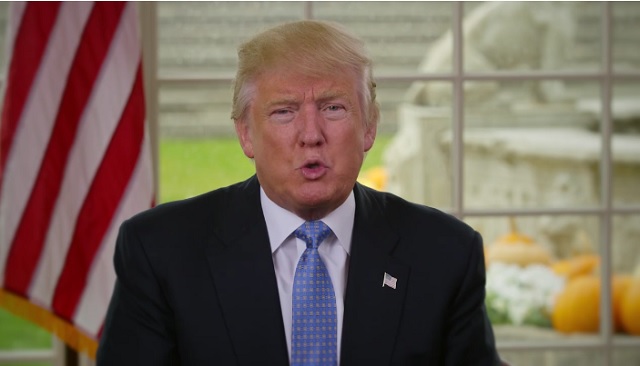
Washington, United States | AFP | US President Donald Trump on Sunday signaled his intent to move forward with controversial tariffs on steel and aluminum imports that have sparked fears of a trade war.
“We are on the losing side of almost all trade deals. Our friends and enemies have taken advantage of the US for many years. Our Steel and Aluminum industries are dead. Sorry, it’s time for a change!” the president wrote on Twitter.
Earlier in the day, two Trump administration officials said the tariffs — 25 percent on steel and 10 percent on aluminum — would likely not include exemptions for allies.
“I know he’s had conversations with a number of the world leaders,” Commerce Secretary Wilbur Ross said on ABC’s “This Week.” “The decision, obviously, is his. But as of the moment, as far as I know, he’s talking about a fairly broad brush.”
In a subsequent interview on NBC’s “Meet the Press,” Ross allowed for the possibility that Trump may yet change his mind, as he has on other issues.
“We shall see. We shall see. I know a lot of ministers from a lot of countries have been talking with the president. They have been talking with me. They have been talking with others. We’ll see. The president makes the decisions,” he said.
Trump ignited fears of a trade war and an outcry from US trading partners when he abruptly announced plans for the tariffs.
British Prime Minister Theresa May said she raised her “deep concern” over the tariffs in a phone call with Trump on Sunday, her office said.
The European Union has said it is drawing up measures against leading US brands like Harley-Davidson and Levi’s jeans, while China warned it “won’t sit idly by” if its interests are hurt.
– A ’rounding error’ –
Canada, which has the most to lose as the top source of US steel and aluminum imports, has called the tariffs “unacceptable.”
Ross, who said he expected them to go into effect in the coming week, played down the potential impact economic impact of retaliatory measures.
“Sure there may well be some sort of retaliation, but the amounts that they’re talking about are also pretty trivial.
“It’s some $3 billion of goods that the Europeans have threatened to put something on. Well, in our sized economy, that’s a tiny, tiny fraction of one percent.”
“So while it might affect an individual producer for a little while, overall it’s not going to be much more than a rounding error,” he said.
 The Independent Uganda: You get the Truth we Pay the Price
The Independent Uganda: You get the Truth we Pay the Price


